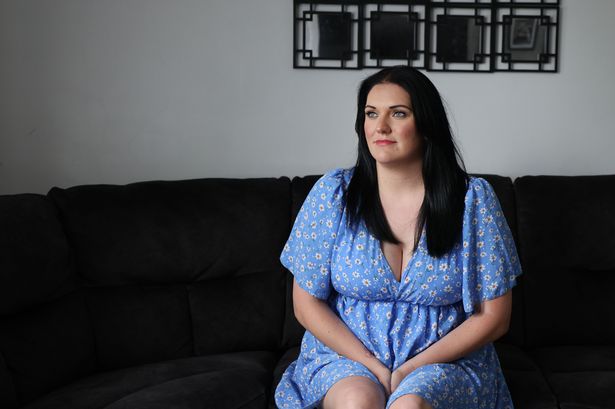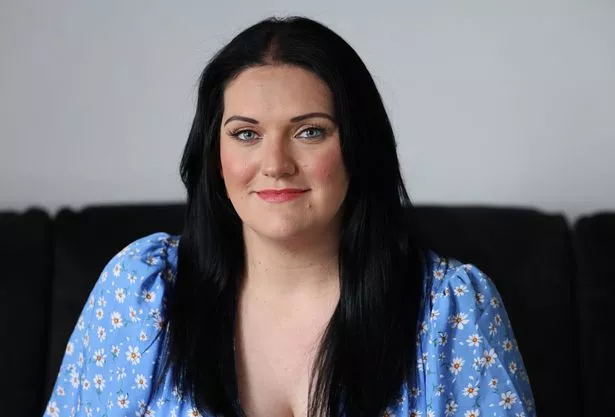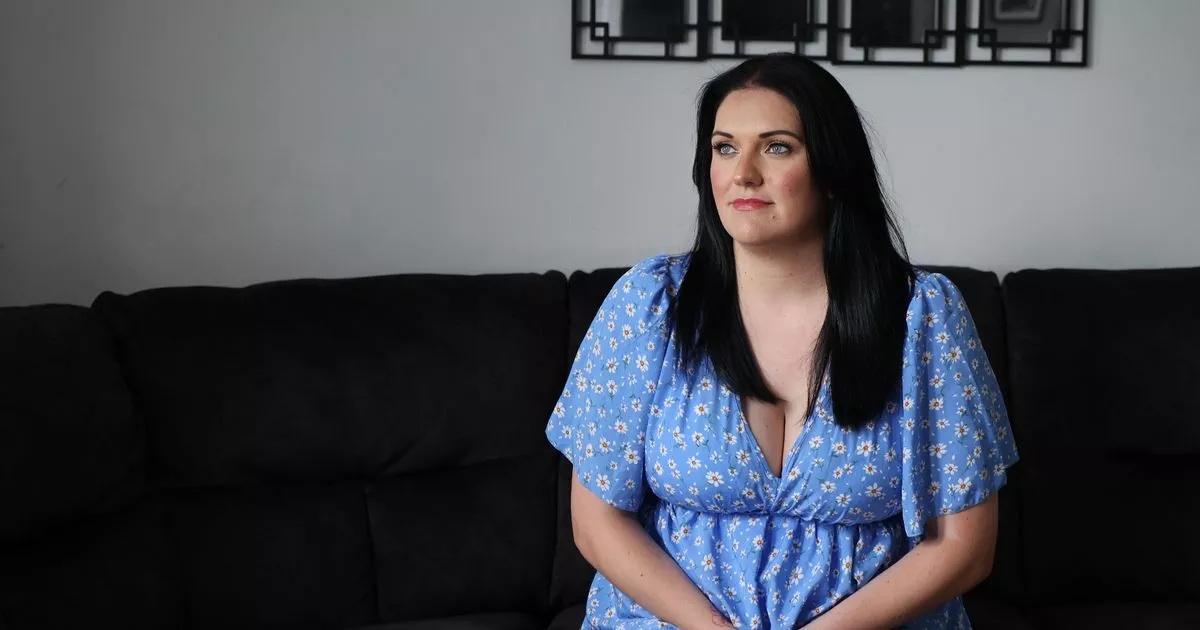The Department for Education said it is rolling out more mental health support in schools
17:00, 20 Jul 2025Updated 17:01, 20 Jul 2025
 Catherine McDermott from Seaforth who is calling for mental health breaks at school for vulnerable children. (Image: Colin Lane/Liverpool Echo)
Catherine McDermott from Seaforth who is calling for mental health breaks at school for vulnerable children. (Image: Colin Lane/Liverpool Echo)
A mum who missed years of education due to anxiety and ADHD said school attendance policies are ‘punishing parents for trying to protect their kids’. Catherine Harvey from Seaforth is campaigning to support vulnerable children at school and prevent her own children from the ‘shame’ she experienced during her own school years.
Catherine and other parents in Sefton are calling on schools and education authorities to implement a policy which would allow vulnerable pupils to take up to five authorised mental health days per academic year to support their wellbeing.
They point to conditions such as Emotionally Based School Avoidance (EBSA), ADHD, Autism (ASD), depression, anxiety, and other mental health challenges which make regular school attendance difficult for many young people.
Catherine said: “The current system focuses almost entirely on attendance figures, often at the expense of a child’s mental health. The system is set up were some parents are being punished for trying to protect their children’s well being.
“As a child I was out of education for over three years due to extreme anxiety. They said I had ‘school phobia’, but I didn’t, I had ADHD.
“I’m 34 and I only got diagnosed ADHD last year. I’d always felt there was something wrong, but had always been told to just deal with life better and toughen up. I’d been trying to ‘toughen up’ my whole life but that was never going to be the answer.
“When I had my son – he’s on the pathway for autism – I noticed quite a lot of similarities between him and me. It made me worry about what his time would be like in school and also what my daughter’s experience had been.”
The statistics relating to mental health issues in young people make for stark reading. NHS figures show one-in-four young people aged 16–24 in England now have a common mental health condition, up from 18.9 % in 2014.
 Catherine McDermott from Seaforth who is calling for mental health breaks at school for vulnerable children. (Image: Colin Lane/Liverpool Echo)
Catherine McDermott from Seaforth who is calling for mental health breaks at school for vulnerable children. (Image: Colin Lane/Liverpool Echo)
More recently, a 2025 report by the Children’s Commissioner Dame Rachel de Souza, showed more than 958,200 children in England have an active referral to Children and Young People’s Mental Health Services (CYPMHS), equivalent to 8% of England’s population of 12 million children.
Furthermore, nearly 60,000 children in England were referred to mental health services for being ‘in crisis’ and 50,000 more children with active referrals were still waiting for treatment to begin at the end of March 2024.
The case for mental health days is supported by guidance published on the NHS website which states that allowing a pupil to stay at home can help improve a student’s condition. It adds this is particularly true in a post-COVID world where classrooms are more integrated with technology than before.
Catherine added: “I actually went back to work in the pupil referral unit that I went to as a kid, and I’ve worked with so many kids who say they struggled to engage in mainstream schools and their attendance suffered.
“This isn’t their fault. This is because we’re not meeting their needs. Parents are basically told that unless their child is in hospital they need to be in school. I just think that’s horrendous.
“For young people, if they’re off for two weeks because their mental health, people knock on the door asking when are they going back to school. It can be very pressured and theirs families that have been issued fines.”
In its 2023 summary of responsibilities for managing mental health issues and attendance, the government states that schools should set and maintain high expectations for the attendance and punctuality of pupils who are anxious about attending school.
It adds that attendance at school may serve to help with the underlying issue and a prolonged period of absence may heighten their anxiety about attending in future.
However, there is currently no statutory right for parents or their children to access authorised absences defined as ‘mental health days’, where a child may ask to take a day off from school to manage a mental health issue.
Catherine said: “This isn’t about, let’s just give them the days off or avoiding education. It’s about making education more accessible for them rather than getting to the absolute crisis point.
“I wasn’t naughty just the quiet kid, but I was made to feel ashamed for not coping and it breaks my heart to think of my own children internalising those feelings.
“If I’d have been allowed a mental health day when I was younger, it wouldn’t have spiralled and problems wouldn’t have escalated. Sometimes that day, just being on your own, or just doing your own thing can be so restorative and a chance to reset and recharge.”
“Sadly, there seems to be no plan in the works to initiate such a scheme so I’m doing this for my own kids and all the other kids who struggle because I don’t want them to be punished for it.”
A Department for Education spokesperson said: “Through our Plan for Change, we’re determined to give children growing up in our country the best start in life. But that can only happen if a strong foundation for learning is built through children regularly attending school.
“Poor attendance damages children’s prospects and places the burden on teachers to support missed learning – affecting the entire class. That’s why fines have a vital place in our system, so everyone is held accountable for ensuring our children are in school.
“Our approach is support-first and we are rolling out more mental health support in schools, set to reach 900,000 more children by March 2026.”
The petition to allow mental health days for school children can be found HERE.

